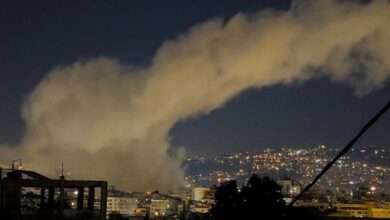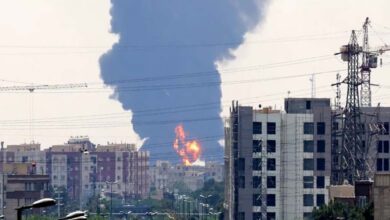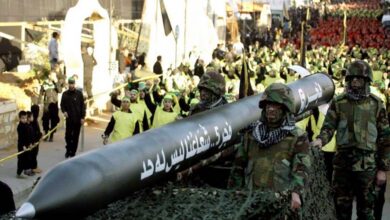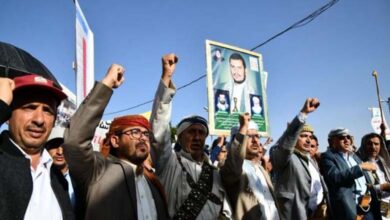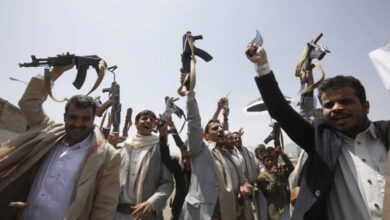43 years of “blood and terrorism”: Tunisia’s Muslim Brotherhood “on their last breath”
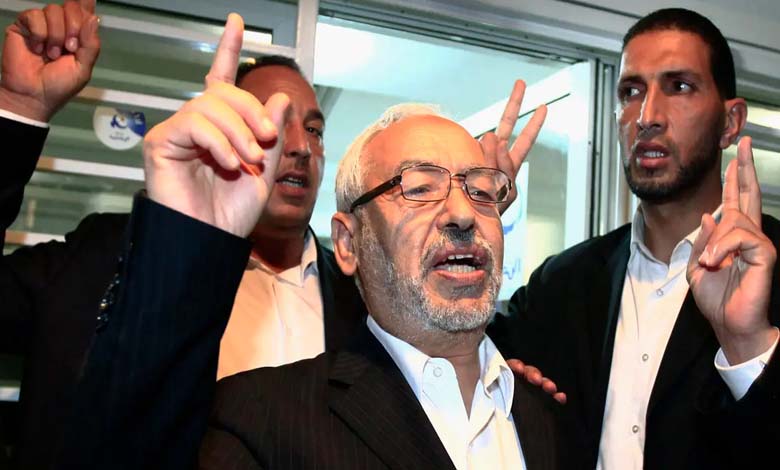
It’s as if history is repeating itself, as they always end up with the same result, either in prison or lost in exile. This is the fate of the Ennahdha Movement of the Muslim Brotherhood in Tunisia.
This movement, founded 43 years ago, has plunged the country into blood and terrorism, and this time it faces dissolution and prohibition amidst popular calls to continue the path of accountability.
Ennahdha has never left the fast track to power, which always ends in shock, bringing the movement back to prisons, just as it did in 1987 and 1989. Even after reaching power, where it stayed for no more than 10 years, it returned to prison for the same crimes of terrorism and bloodshed.
According to observers, Ennahdha has relied on the same policies since its foundation, entering and exiting prison due to its tactics and plans, taking advantage of the country’s political situation. However, this time it will not happen thanks to the policies of President Kais Saied, a strict jurist.
The anniversary of the movement’s foundation comes amidst scandals facing Ennahdha and its leaders, including charges of terrorist crimes, political assassinations, money laundering, and the involvement of most of its leaders in crimes against the Tunisian state, as well as receiving foreign funding.
“Crimes en Masse”
On this subject, political analyst and activist Nabil El Ghawari said: “The Ennahdha Movement is finished and today faces the most horrific charges for the crimes it committed during its rule, having dragged the country into violence, murder, terrorism, and bloodshed.”
He confirmed that “this movement deceived the Tunisian people in 2011 who elected it after a victimization speech, but it lied to them, harmed their interests, and plunged the country into violence.”
He explained that “Ennahdha is a bloodthirsty party. Since its rise to power, it has dragged the country into regional plots, contributed to the destruction of sister countries by sending terrorists from Tunisia to conflict zones for jihad, in addition to its involvement in political assassinations, the slaughter of soldiers, the killing of innocents, and the bankruptcy of the country.”
He noted that “Rached Ghannouchi, this octogenarian, returned to Tunisia from his exile in 2011 with feelings of vengeance against the country and its people, so he quickly implemented his criminal, vengeful, and terrorist plan by releasing all terrorists from prisons and allowing them to destroy the country.”
A “Dark” Fate
On the other hand, Tunisian political analyst Abderrazak Al-Rais said that the Ennahdha Movement is currently facing dissolution and prohibition after the party’s involvement in terrorist cases that harmed the country’s national security.
He confirmed that “since Rached Ghannouchi‘s imprisonment in April 2023, this movement has ended, especially as it is politically and financially tied to his person and his close circle, considering that Ghannouchi is the head of the group and the link with the international organization of the Muslim Brotherhood.”
He emphasized that “this movement is finished this time and will never regain its influence, especially as the figures still leading it were previously second-tier and did not have a significant impact on the Brotherhood’s plans or governance, confirming the end of this organization.”
History of Tunisia’s Muslim Brotherhood
The Ennahdha Movement was officially announced on June 6, 1981, during a press conference held by Rached Ghannouchi, Abdel Fattah Mourou, Zahir Mahjoub, Ben Issa Damani, and Habib Mekni.
The movement applied for official recognition on the same day without receiving any response from the authorities. On July 18, 1981, the authorities arrested 107 leaders of the movement who were tried in September on charges of belonging to an unauthorized association, insulting the dignity of the president of the republic, spreading false news, and distributing hostile leaflets.
Rached Ghannouchi and Salah Karker were sentenced to 11 years in prison, Abdel Fattah Mourou to 10 years, and the others to various sentences. Seven of them were released.
On August 3, 1984, President Habib Bourguiba ordered the release of all political Islam detainees. The movement quickly held its third congress on August 25 and 26, 1984, in Soliman with the presence of 70 people.
In March 1987, Ghannouchi was arrested. Clashes reached their peak in 1987 with Ghannouchi sentenced to life imprisonment with hard labor in September 1987 after being involved in bombings targeting four hotels in Sousse and Monastir, injuring 13 people, and kidnapping officials and burning police stations.
After Tunisian President Zine El Abidine Ben Ali came to power on November 7, 1987, the Brotherhood leaders were released.
In May 1991, the government announced that it had foiled a plot to overthrow the regime and assassinate President Ben Ali, accusing the Ennahdha Movement of planning to bring down Ben Ali’s plane.
In August 1992, the Tunisian military court sentenced Brotherhood leaders to prison, including Rached Ghannouchi, who was sentenced in absentia to life imprisonment for conspiracy against the head of state, after fleeing the country.



